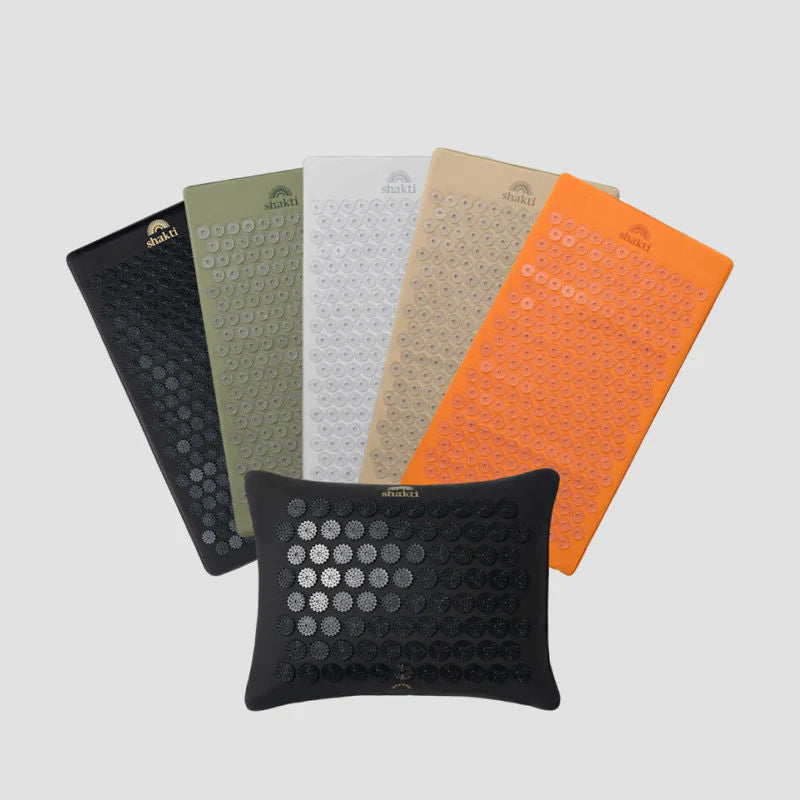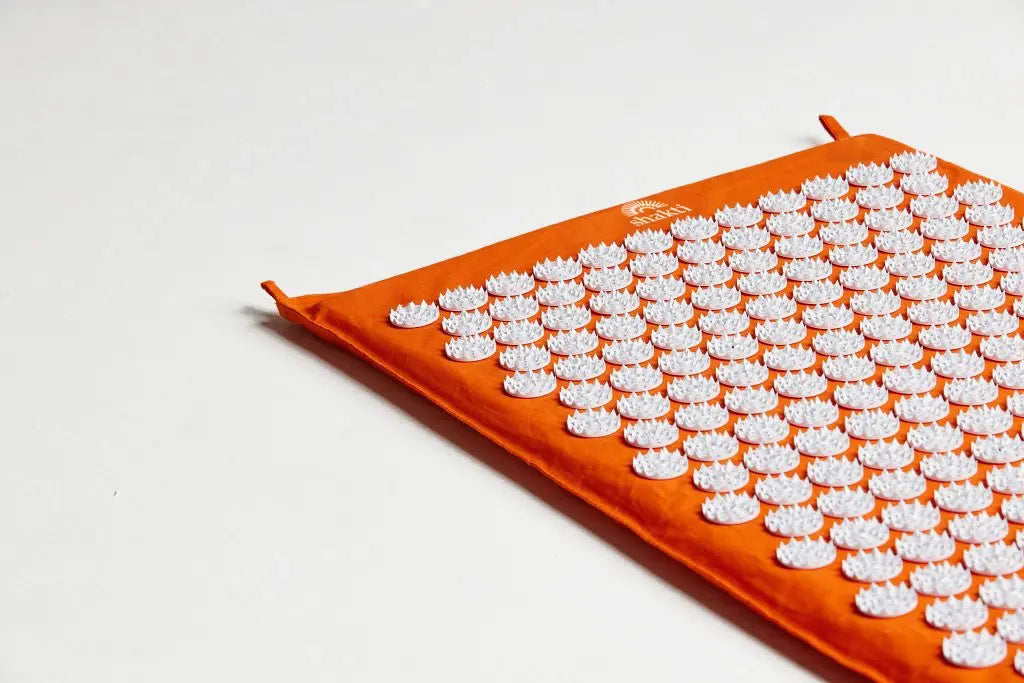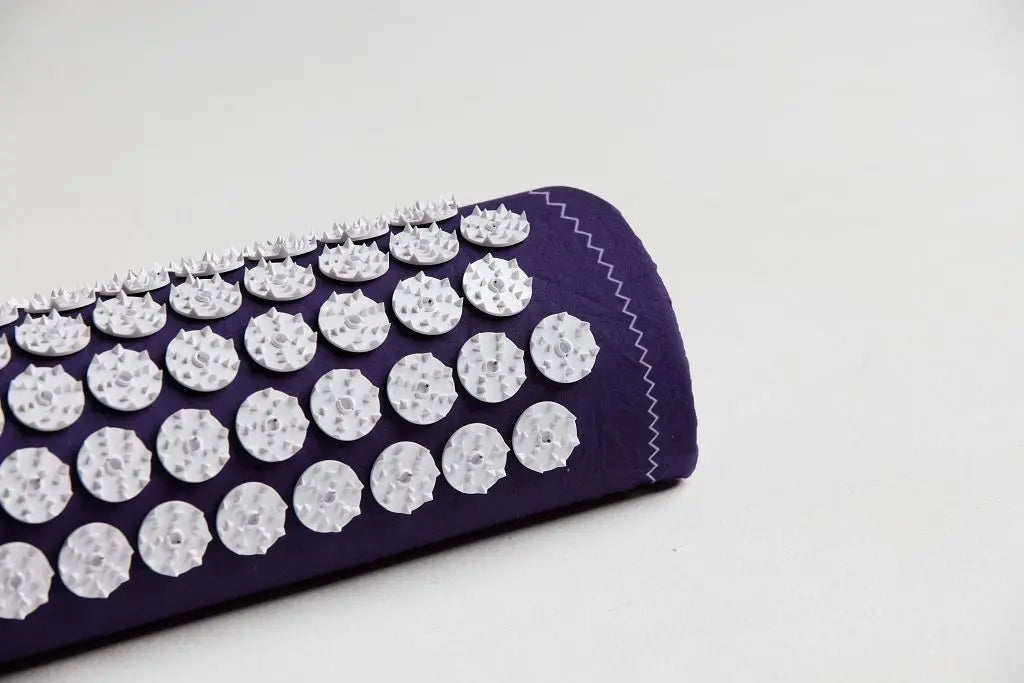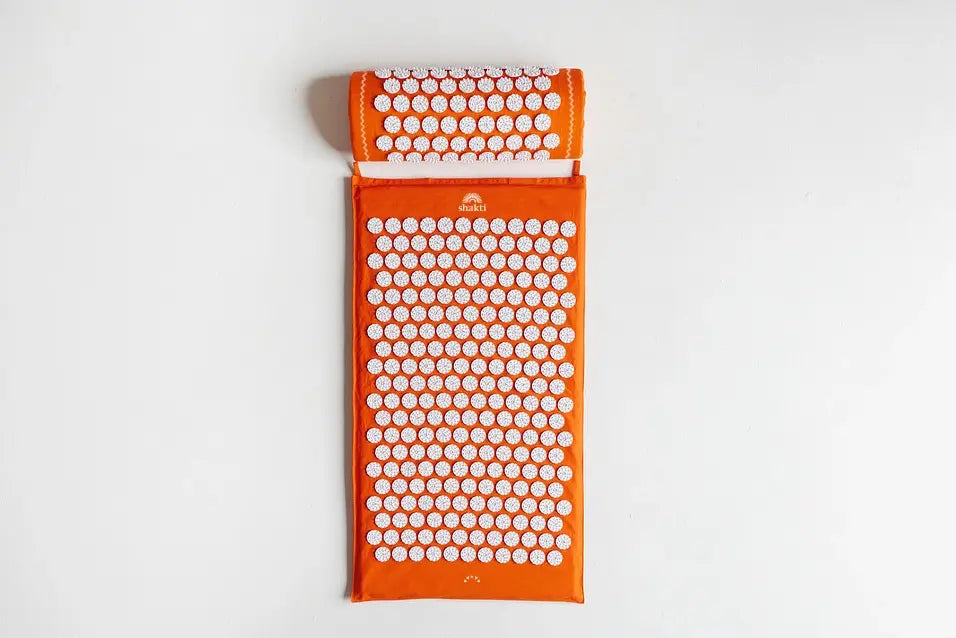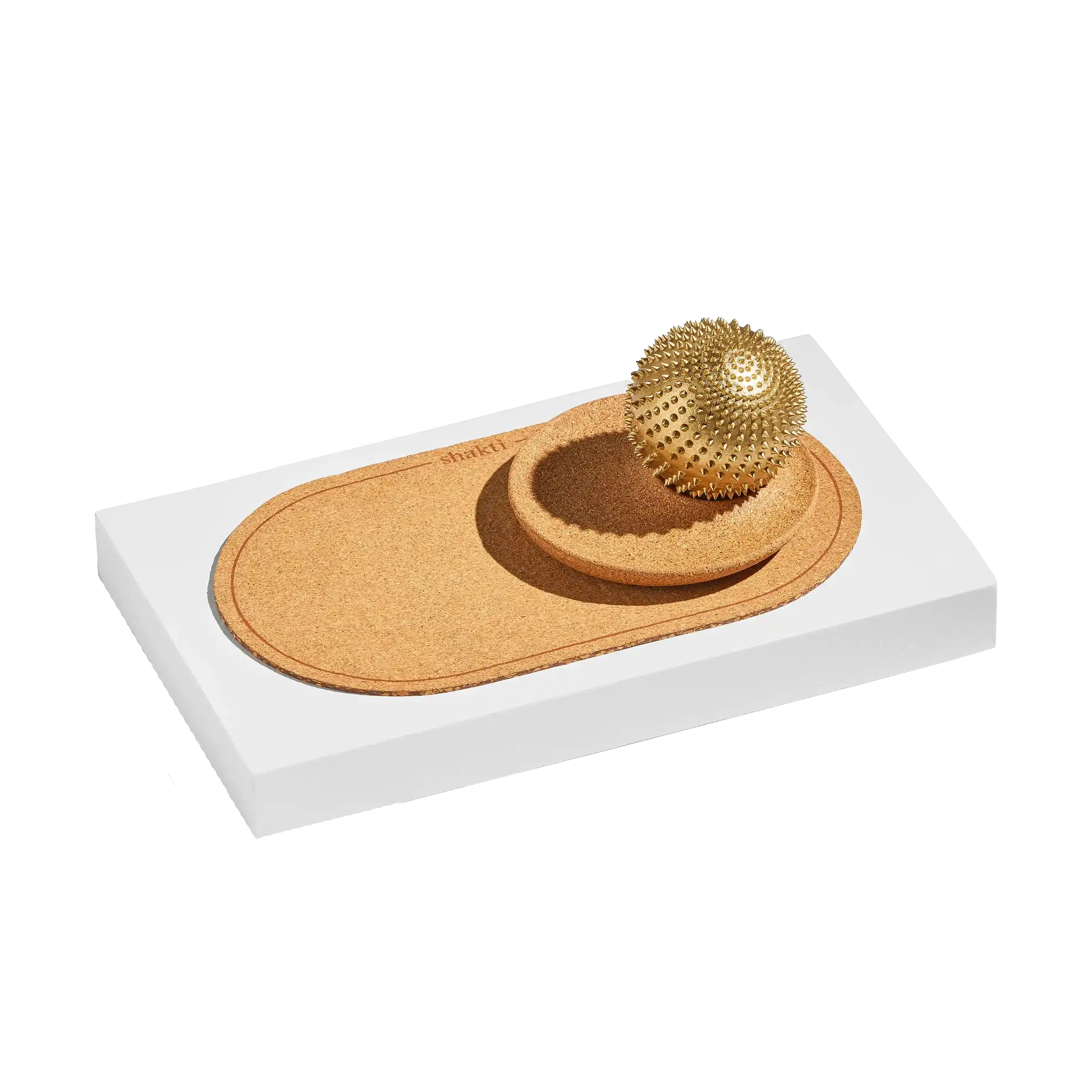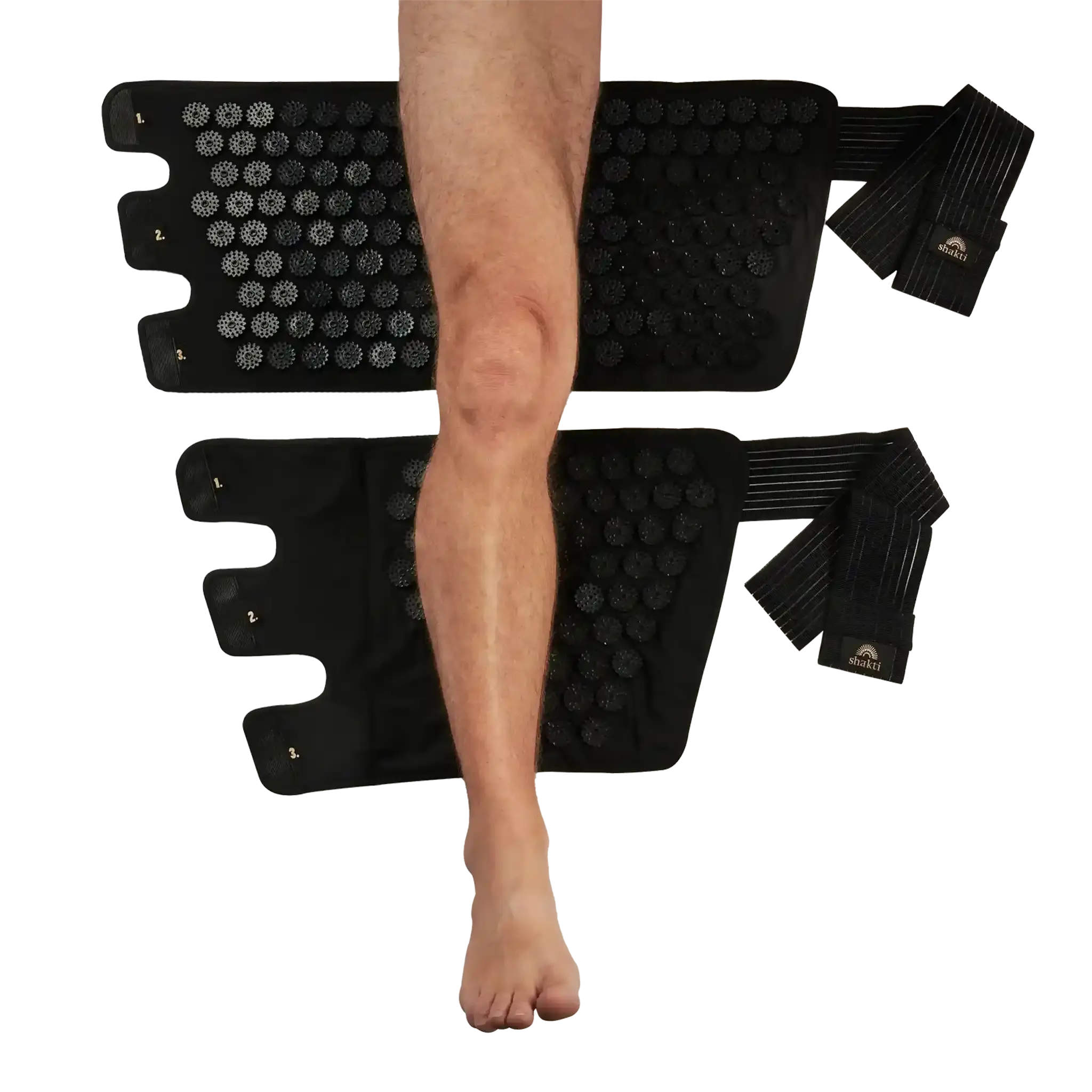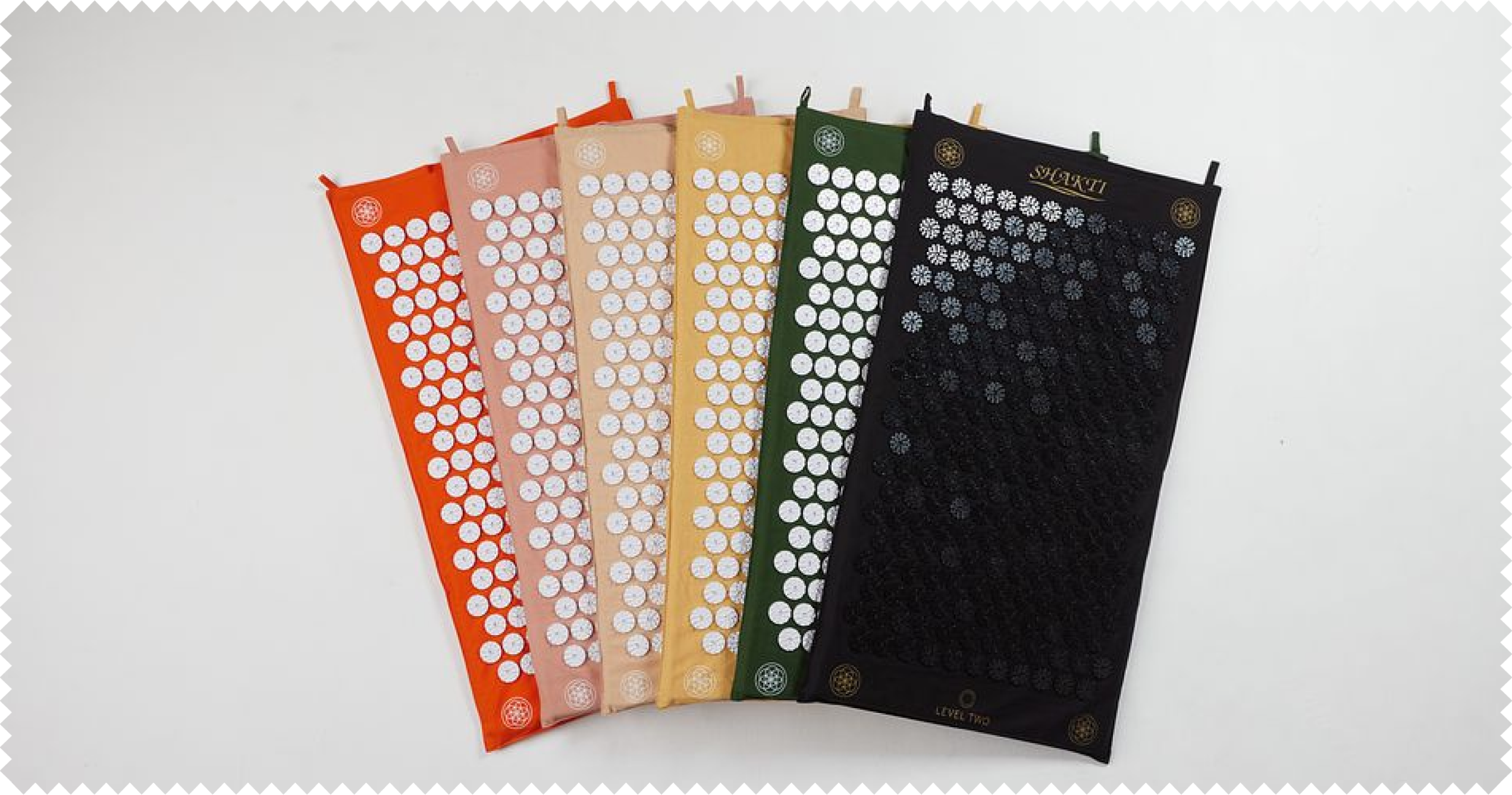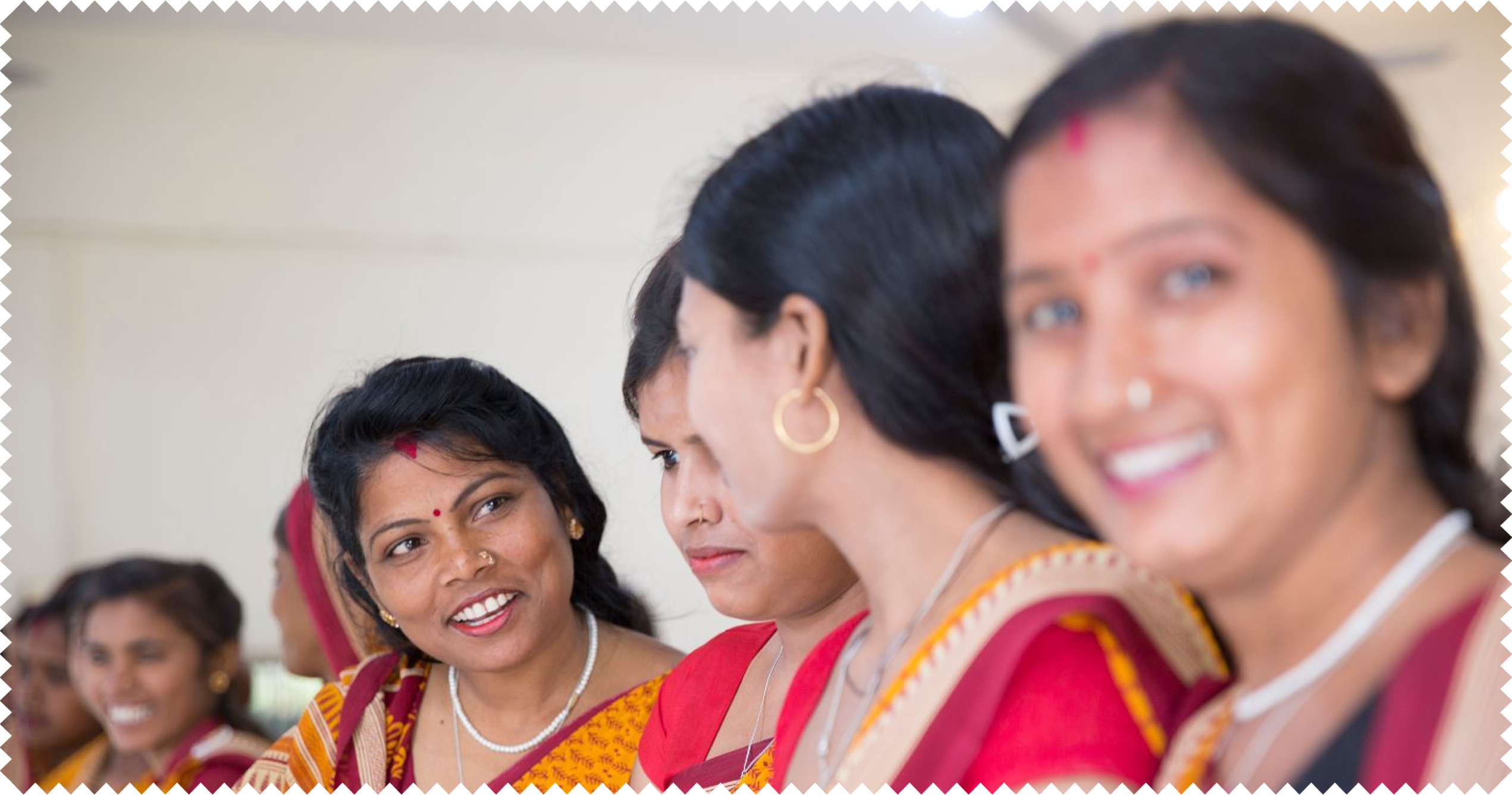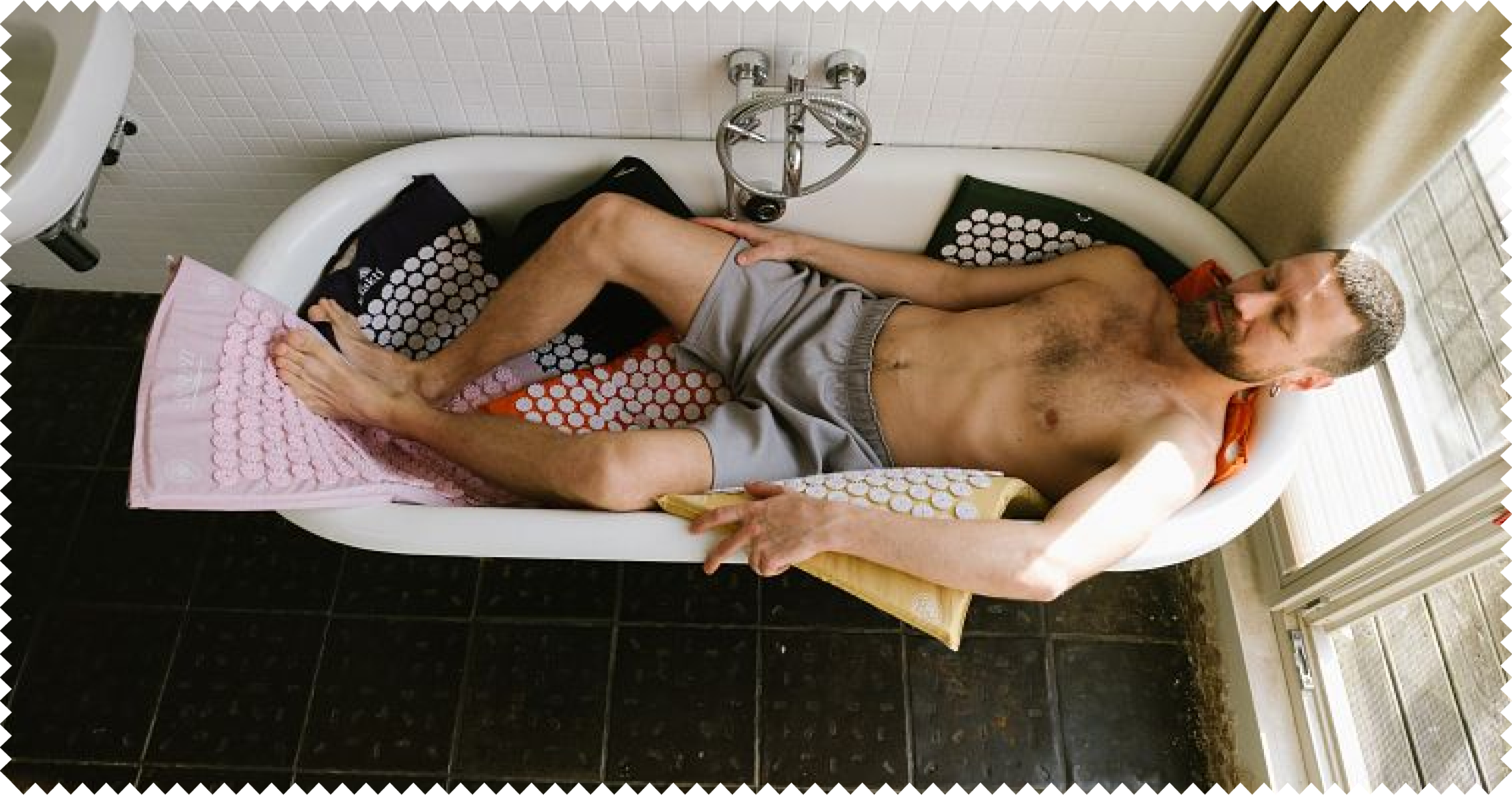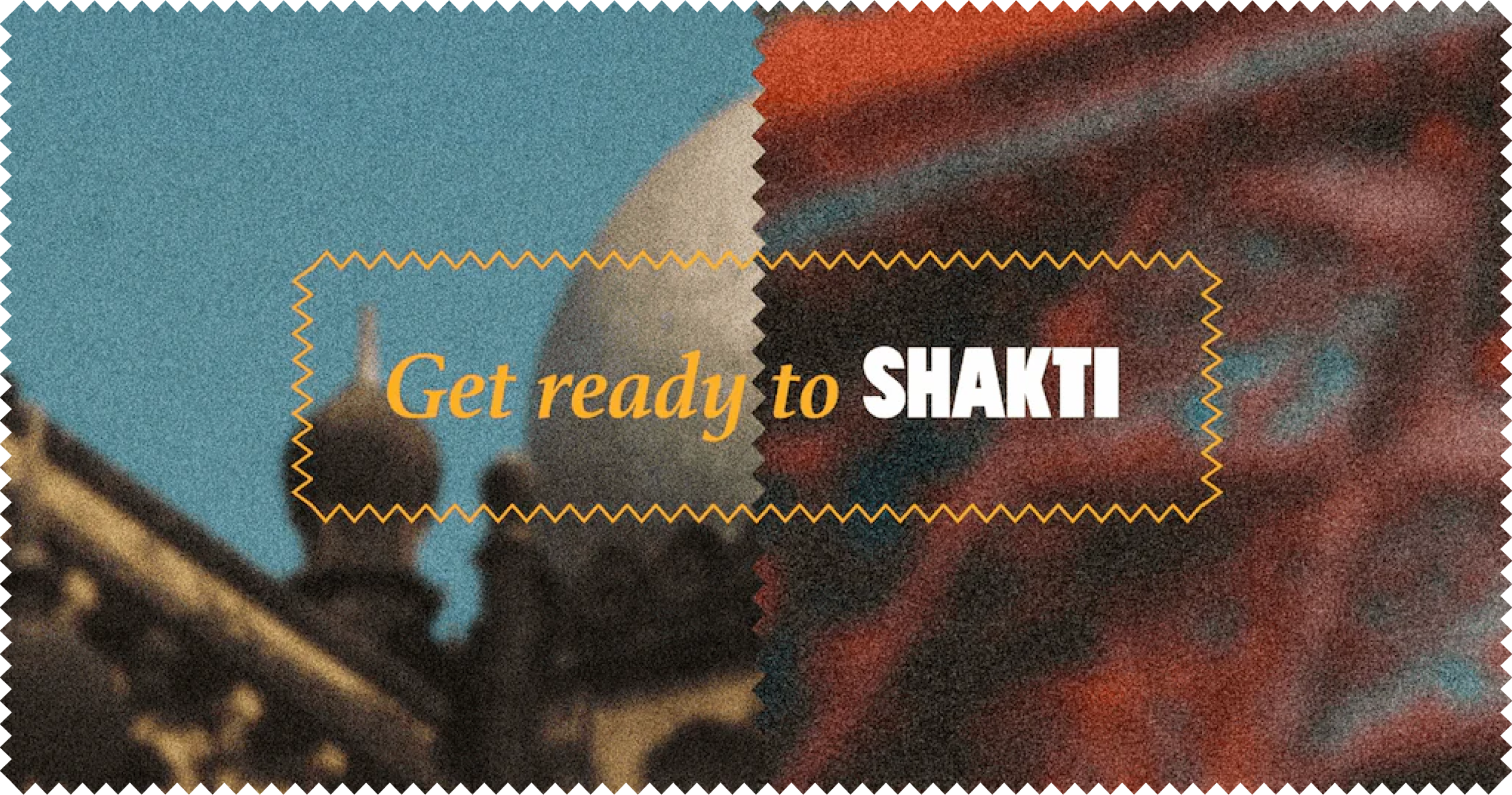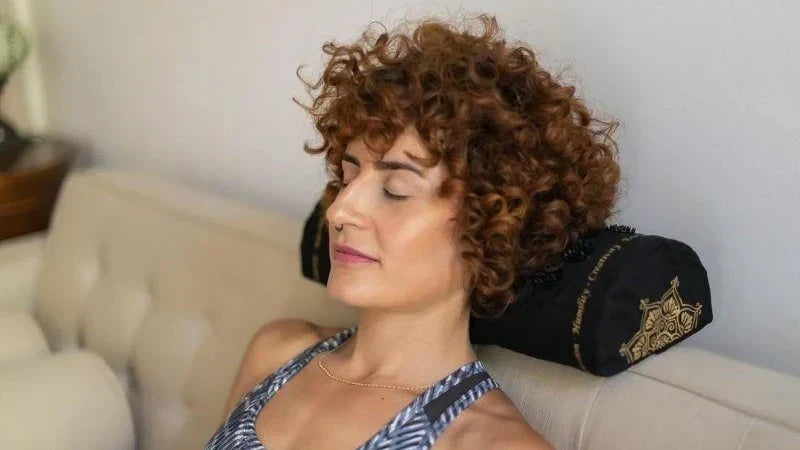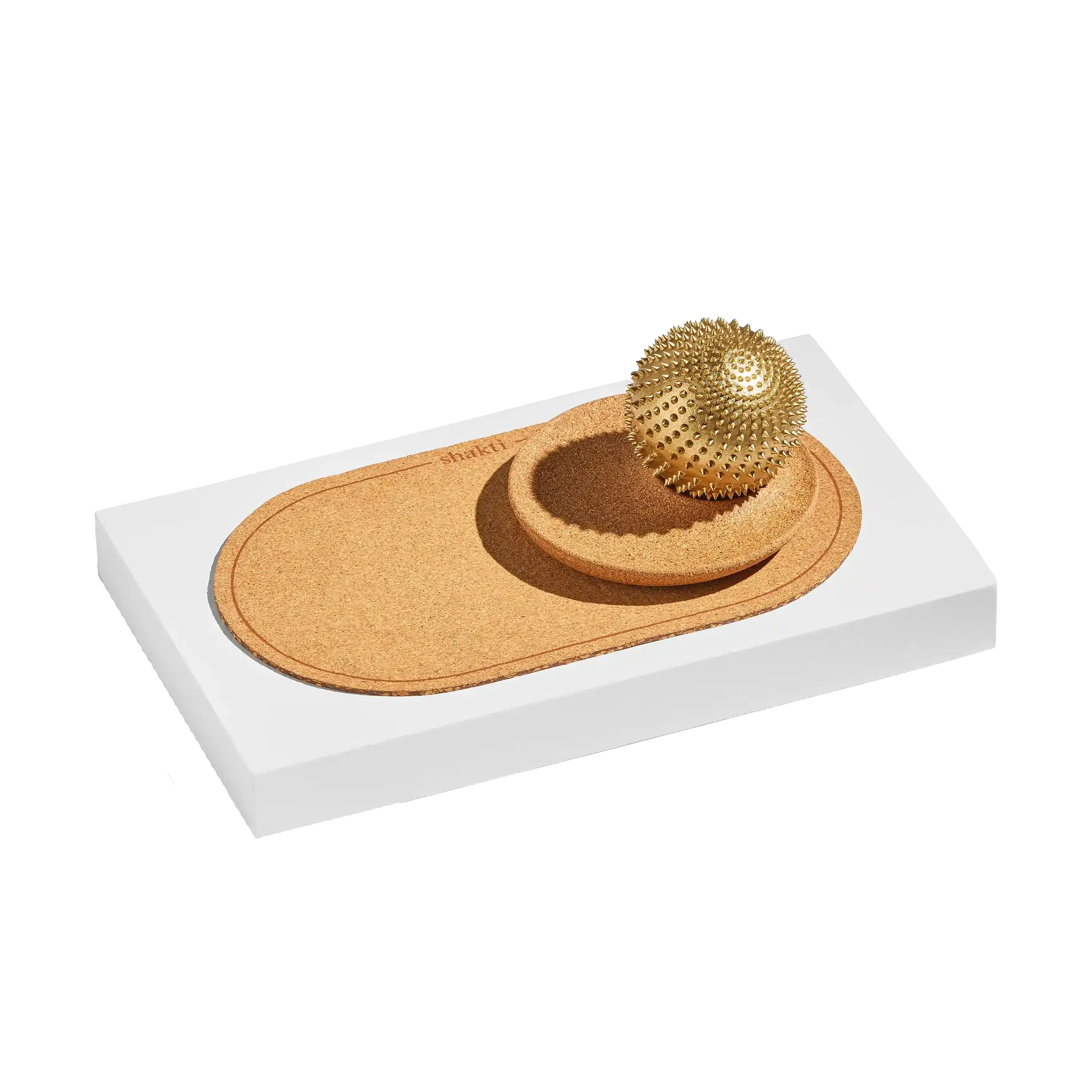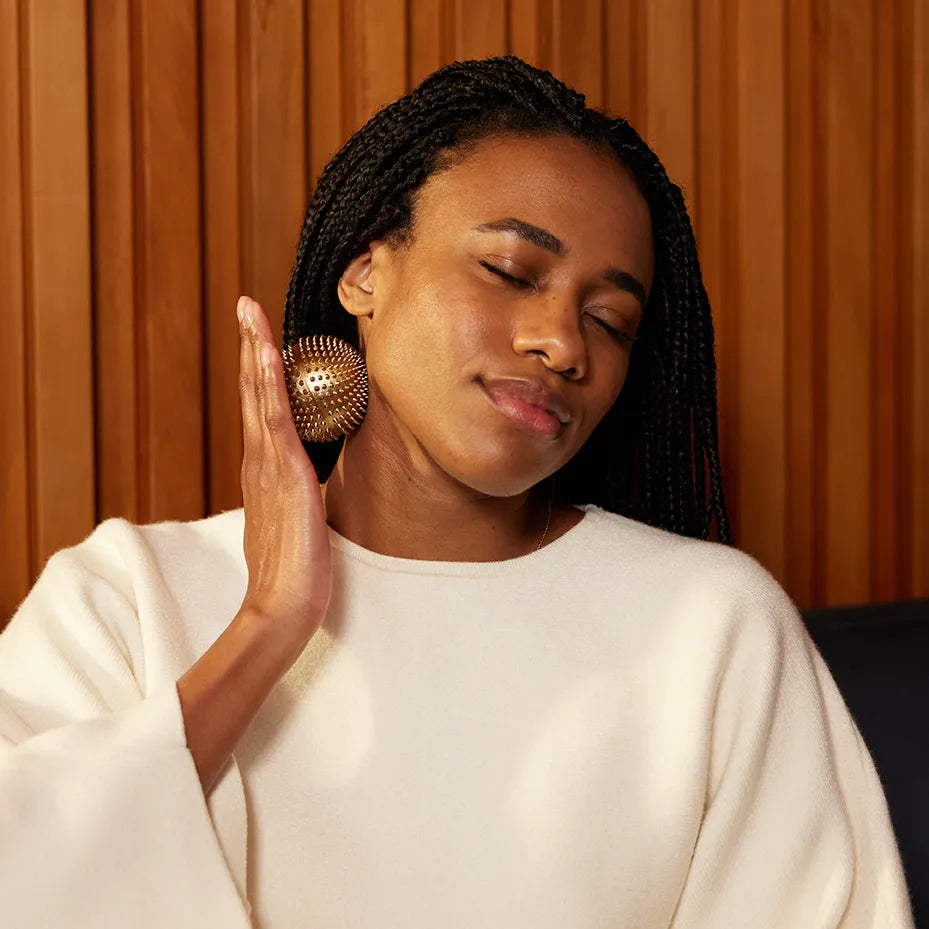In this six-week study with three test groups and 120 participants, Shakti Mat and Kenkou demonstrate the effect of using our acupressure mat on heart rate (bpm), relaxation capacity (RMSSD) and stress level (SL). Click here for the infographic and here for the scientific study.
We are becoming increasingly stressed - that much is certain. A survey of over 1,200 people conducted by Techniker Krankenkasse revealed that 60 percent of all respondents experience stress in their professional or private lives. Among 30 to 39-year-olds, the figure was as high as 82 percent. This is definitely not a good prognosis for your health.
Stress per se does not always have to be bad, but if it becomes a permanent condition, it can have a negative impact on both our mental and physical well-being and have lasting consequences.
Content
1. time for a stress experiment
2 Our approach to the Shakti Kenkou experiment
4th Spotlight: What our participants say
5. how do you bring more peace into your everyday life?
Time for a stress experiment
Every day we receive great testimonials and feedback from people who regularly use our acupressure mat and have been able to sustainably reduce their stress levels as a result, both via our Facebook group and via the reviews.
As you can imagine, we have no doubt that the Shakti Mat can be wonderfully supportive for many complaints related to stress, such as headaches, fibromyalgia, sleep disorders or back pain.
The question remains: How does this beneficial effect come about and what is actually happening in the body? Because even if we can feel a change in ourselves, the mind tries to find answers and reasons.
We were therefore all the more delighted when the Berlin health start-up Kenkou approached us a few months ago and suggested a collaboration. Some of the founders had already gained their own experience on the Shakti Mat, which gave them the idea.
The aim was to prove in a joint test that the Shakti Mat in combination with the Kenkou app has a lasting effect on health.
In this article, we would like to describe the test and the results. Perhaps it will convince you to use your Shakti Mat even more often.
Wait a minute, who is Kenkou anyway?
Kenkou is a Berlin-based start-up that pursues the vision of developing accessible solutions for a stress-free life. To this end, they have developed the Kenkou Stress Guide app, which combines innovative medical technologies with proven concepts of mindfulness.
As you can see, this is very similar to the vision we have for Shakti Mat, which is why we were so excited about this project.
Reducing stress doesn't have to be stressful: how the Kenkou Stress Guide app works
The Kenkou Stress Guide is therefore a kind of digital companion that scientifically analyzes your stress level and helps you to deal with your stress better with the help of relaxation exercises and positive habits.
It is a CE-certified medical device that doctors, data and IT scientists have developed together. The Stress Guide also uses artificial intelligence, deep data and digital biomarkers to gain a better understanding of individual stress and thus counteract it in a targeted manner.
The respective stress measurements are taken using a smartphone camera and analyze your breathing and pulse rate. This vital data analysis is used to determine the heart rate variability (HRV), which measures the interval between successive heartbeats.
HRV measurements offer a non-invasive marker to gain an insight into the autonomic nervous system (ANS) and therefore into the state of the body. This is why HRV measurements can be used so successfully as a preventative tool against stress.
This is what the measurement within the Kenkou app looks like. The Kenkou Stress Guide app attempts to measure and reduce your stress level in three steps:
With the help of your built-in smartphone camera, you can carry out scientifically based stress level measurements without any additional hardware. You simply hold your finger on the flash of your camera and your stress level is measured. Illuminating the fingertip allows you to analyze the blood vessels.
Within the app there are individual programs and exercises against stress that leading biopsychologists and stress therapists have developed to reduce your stress level in a targeted and sustainable way.
Certain anti-stress exercises are recommended to suit your personal stress level. These can be guided mindfulness meditations, short breathing exercises or relaxation tasks.
The beauty is that you continuously assess your personal progress with measurement reports and feedback. This way you always have an insight into your stress rating and can see your very individual successes to achieve a sustainable stress reduction.
The different programs of the Kenkou App:
- Sleep better
- Healthy diet
- Live at the moment
- Learning to let go
- Positive mindset
- Negative emotions
- Creativity
- More energy at work
- Family stress
- Sport and stress
Our approach to the Shakti Kenkou experiment
Fortunately, the Shakti community is great, open and curious. So it wasn't too much of a challenge to find 120 volunteer testers who wanted to take part in this experiment.
We divided the 120 testers into three equal groups, each of which was to take three measurements a day. One measurement before the respective application, one measurement during the application and one measurement after the application.
The test groups were as follows:
- A test group A (comparison group), which took three measurements a day before, during and after use on a yoga or sports mat. This allowed us to determine a comparative value for the other groups.
- A Shakti group B, which took three measurements daily before, during and after the application on a Shakti Mat.
- A Kenkou Shakti group C, which took three measurements daily before, during and after the application on a Shakti Mat and used the Kenkou Stress Guide in parallel.
For the test, it was important that our testers carried out the measurements at least 4 times a week for 8 weeks. To our astonishment, many of our testers even measured daily.
The testers also kept a measurement diary, which made it easier for Kenkou and us to assign the results during the evaluation.
The parameters: This is what we analyzed in the test
The Shakti Mat can also be easily incorporated into everyday working life.
Let's now look at the technical data that we evaluated and analyzed during our test.
Heart rate (bpm)
Heart rate is a fundamental parameter that indicates an overall working efficiency of the cardiovascular system. An increased heart rate in a relaxed environment means increased "cardiovascular costs", possibly due to chronic stress or heart disease.
Ability to relax (RMSSD)
Our heart is a muscle that works all the time. It cannot be stopped to recover, but must do so while it is working. How can the heart recover? Well, it depends on the rhythm.
If it beats at the same rhythm for a long time, the heart muscle tires quickly. However, if the rhythm varies, the muscle has time to recover and tires more slowly. The RMSSD shows how variably the heart beats and can therefore recover.
Your ability to recover is measured via the parasympathetic nervous system. This controls your body while it is at rest. The easier it is for you to come back to rest from a tense state, the greater your ability to recover.
The rhythmic variability of the heart (RMSSD) indicates how well your body recovers from stress. It reflects whether the parasympathetic nervous system can ensure regeneration and recovery. A strong resistance to stress is partly due to a high RMSSD.
Stress level
The cardiovascular stress level shows whether a certain heart rate dominates. The dominant heart rhythm in a relaxed environment indicates that the "resting" stress level is still present.
Your stress level (SL) is a heart rate index and is determined by the variability of your heart rate. It shows you objectively how much stress you are currently under. The higher the value, the more tense your body is.
The results of our test
The participants in group C (Shakti Mat & Stress Guide) were much more motivated than the participants in groups A (control group) and B (Shakti Mat only). We can see this from the fact that most of them carried out the experiment to the end. Control group A had the most dropouts.
Getting to grips with stress levels
In the control group (those testers who only lay down on a yoga or sports mat), the stress level did not change. In comparison, the stress level in test group B (testers who used the Shakti Mat) decreased significantly. The effect of stress reduction was strongest in test group C (using the Shakti Mat and the Kenkou Stress Guide app).
More ability to relax for more peace of mind
As described above, the rhythmic variability of the heart tells us something about how quickly we can recover from stress and thus relax.
In the control group, there was no change in the ability of the cardiovascular system to relax during the experiment. In test group B (Shakti Mat only), the ability to relax increased significantly. The effect of the increase was greatest in the Shakti Mat and Kenkou Stress Guide group.
The lower the heart rate, the better
The heart rate showed a tendency to decrease in all groups; however, it was highest and statistically significant in test group C (Shakti Mat and Kenkou Stress Guide in combination).
Spotlight: What our participants say
We asked two of our testers to tell you and us what they thought of the test. You can read their answers here:
Nadine Stemke, alternative practitioner and group C tester
"I started the Kenkou test with my Shakti Mat Light. Before that, I used it regularly, especially to relax my shoulders and neck. After the test, my evening routine with the Shakti Mat became a real relaxation ritual. Meditation and relaxation techniques have been part of my daily routine for many years, so I was very curious to see what the Kenkou program would change. The quote of the day often put a smile on my face in the morning. The conscious breathing exercise with the graphic support was a completely new experience for me because it was so different. Over time, I was able to get more and more involved in it and achieve deeper relaxation through conscious breathing. Using the program has shown me that my individual perception of my stress level does not necessarily correspond to my actual tension. I can deal with stress well and put my body through a lot. Through the exercises in the Kenkou program and the use of the Shakti Mat, I have created more conscious islands of energy so that I can switch off from time to time and give my body a break. I can now notice the difference even better."
Tobias Riegel, meditation teacher, organic farmer and tester group C
"I have been using the Shakti Mat regularly for about 2 years. At the beginning of the year, I applied for the test. I was assigned to the group of Shakti Mat and Kenkou Stress Guide testers. At the beginning, I was traveling for work in India, Bhutan and Finland. Especially when it came to switching off and overcoming the time zone difference, "calming down" on the Shakti Mat always helped me. In combination with the Kenkou Stress Guide, it was brilliant. At first I was a bit annoyed by the introductions to techniques that I already knew. But then I just got involved again and was really blown away. Since this year went by quite unexpectedly, Shakti Mat has become part of my morning meditation ritual. Sometimes with the Kenkou Stress app, sometimes just like that. And the initial 15 minutes on the Shakti Mat has now often turned into more than an hour. Now I've started doing yoga exercises on the mat. It goes on and on. 😊"
How do you bring more peace into your everyday life?
As you can now see for yourself, the beneficial effects of both the Shakti Mat and the Kenkou Stress Guide can indeed be measured. Above all, this should provide our mind with many answers, which it likes to ask for when feeling is not enough.
As mentioned at the beginning, stress can motivate us to achieve our goals and give even more. However, if this condition becomes a permanent burden, we suffer and, building on this, form symptoms that we will soon have to treat.
This is precisely why it is important to build moments into our everyday lives when we can let go and let be. Moments in which we can reflect on ourselves again, look inwards and feel ourselves again - which is no longer so easy with all the distractions and stress factors these days.
A daily time-out on the Shakti Mat and the courses in the Kenkou Stress Guide can help you do just that. You will get to know yourself better and recognize stress before it can have long-term effects on your well-being.
We hope that this experiment has motivated you to be more aware of stress and thus keep a better eye on it.
That's it for the topic of stress from Kenkou and us. If you have any questions about the experiment, the numbers or the application, you can write to us at any time - we look forward to your feedback!
Sources for this article
- http://www.praxis-stemke.de/
- https://www.kenkou.de/
- https://www.tk.de/resource/blob/2026630/9154e4c71766c410dc859916aa798217/tk-stressstudie-2016-data.pdf


